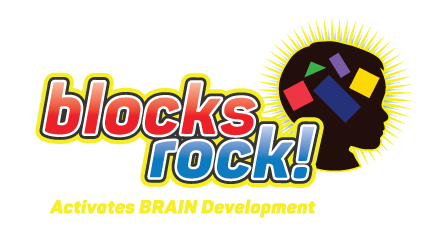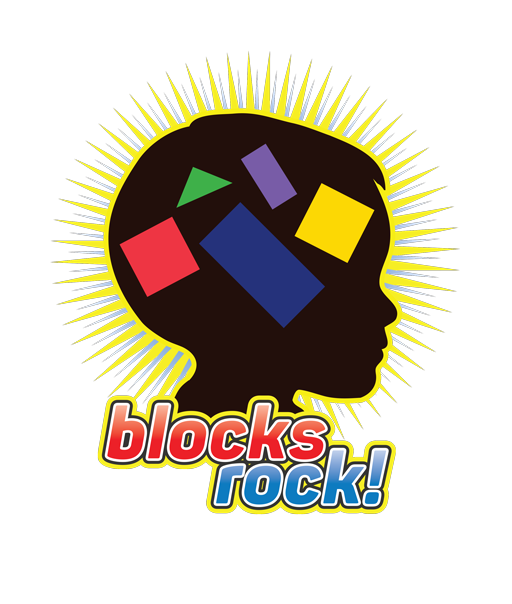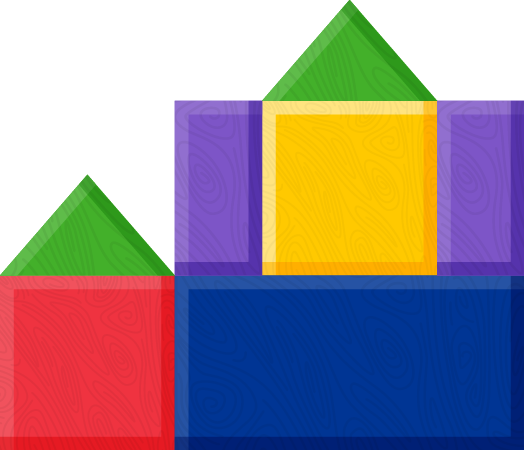When comparing a set of building blocks to sophisticated-looking toys, you might wonder how blocks stack up. You might be surprised to learn that building blocks provide impactful learning opportunities that should not be overlooked or ignored.
Research has shown that block play supports the development of social skills, abstract thinking, creativity, mathematical thinking, and literacy (Hanline, Milton, Phelps 2009).
Building Social Skills
Playing blocks with other children helps kids to make friends and learn how to cooperate. In the study “Social Skills: Laying the Foundation for Success”, Sharon A. Lynch and Cynthia G. Simpson list blocks as a primary “learning material that encourages cooperative play”.
With Blocks Rock!’s competitive aspect, children also learn how to navigate competitive situations with their friends and classmates. When trying to build difficult structures from our 3D app, children also must learn how to work together and problem solve as part of a team.
Building Physical & Motor Skills
While they are reaching for blocks, stacking blocks, and making blocks fit, children are developing their hand-eye coordination while building finger and hand-strength. Block building helps to fine-tune motor skills, and in kindergarten and primary grade children, it develops skills in the area of design, representation, balance and stability (NAEYC).
Building Creative Skills
When playing with blocks, children can build structures from their minds that did not exist or re-create a template that awes them. This encourages their artistic creativity! Beyond artistic creativity, building blocks allow children to practice creative problem solving skills. A study by Pepler and Ross (1981), found that kids who played with blocks instead of a puzzled performed better on divergent problems and showed more creativity in their attempts to solve the problems.
Building Intellectual Skills
Last, but certainly not least, building blocks develop intellectual skills in a variety of areas, such as math, spatial reasoning, and literacy/language.
Researchers found that more complex block play during preschool years was correlated with higher mathematics achievement in high school, even after controlling for a child's IQ (Wolfgang et al 2001; 2003). In another study, 6th grade students who spent more free time in construction play performed better on a test of mathematics word problems (Oostermejier et al 2014).
A recent study using Blocks Rock! found that structured block-building games improve spatial reasoning abilities, an important skill for STEM learning, in children to a greater degree than board games. You can read more about this here.
When looking at literacy and language, a study found that children of the experimental group that were instructed to play with blocks over a six-month time scored higher on parent-reported tests of vocabulary, grammar, and verbal comprehension and also showed a nonsignificant trend towards watching TV than the control group that did not play with blocks until the very end of the study (Christakis et al 2007). Children also learn literacy and language skills as they describe what they are building.
Which blocks should you choose for your children?
There are many options for building blocks out on the market, ranging from packets sold by large retailers to games sold by small, education-focused companies like Blocks Rock! While some building block games come with just a set of blocks, Blocks Rock! uses cards with special block designs and a free 3D app to take learning opportunities to new heights.
Although we are an active proponent of all block building and block games, we encourage you to learn more about Blocks Rock! to see if this powerful developmental tool has a place in your home or classroom.
Resources:
“Social Skills: Laying the Foundation for Success.” Sharon A. Lynch & Cynthia G. Simpson.
“Block play: Building a child's mind.” National Association for the Education of Young Children (NAEYC). Copyright © 1997.
Hirsch, E.S. 1996. The Block Book.(Third Ed.) Washington, DC: NAEYC. #132 / $5.
NAEYC. 1993. Block Play: Constructing Realities (video). Washington, DC: NAEYC.#838 / $39.
Hanline, M. F., Milton, S., & Phelps, P. C. (2009). The relationship between preschool block play and reading and math abilities in early elementary school: A longitudinal study of children with and without disabilities. Early Child Development and Care.
http://www.parentingscience.com/toy-blocks.html
Christakis DA, Zimmerman FJ, and Garrison MM. 2007. Effect of block play on language acquisition and attention in toddlers: a pilot randomized controlled trial. Arch Pediatr Adolesc Med. 161(10):967-71.
Pepler DJ and Ross HS. 1981. The effects of play on convergent and divergent problem solving. Child Development 52(4): 1202-1210.


